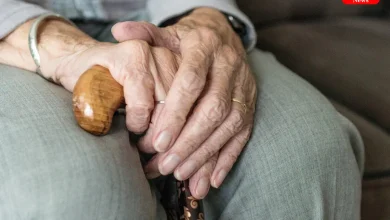Can Poor Sleep Increase Your Risk Of Cancer? Common Questions Answered By Oncology Expert
Explore the intricate link between poor sleep and cancer risk with insights from oncology experts, shedding light on preventive measures and proactive health strategies.
Unveiling the Sleep-Cancer Connection: Insights from Oncology Experts”
In recent years, researchers have delved into the intricate relationship between sleep and health, uncovering surprising connections between poor sleep habits and various health conditions, including cancer. As concerns about cancer continue to be at the forefront of public health, understanding the potential link between inadequate sleep and cancer risk is paramount. To shed light on this complex topic, we turn to oncology experts who address common questions and provide insights into the relationship between sleep and cancer risk.
1: The Link Between Sleep and Cancer Risk: Sleep is essential for overall health and well-being, playing a crucial role in various bodily functions, including immune function, hormone regulation, and cellular repair. Disruption of these processes due to poor sleep habits may contribute to an increased risk of developing cancer. Oncology experts suggest that chronic sleep deprivation or disturbances in sleep patterns can disrupt the body’s natural defenses against cancer cells, potentially leading to a higher susceptibility to the disease.
Read more: The Power of Love: Exploring How Viewing Pictures of Loved Ones Can Offer Pain Relief
2: Understanding the Mechanisms: To comprehend how poor sleep may influence cancer risk, it’s essential to delve into the underlying mechanisms involved. One key mechanism is the disruption of the circadian rhythm, often referred to as the body’s internal clock. Irregular sleep patterns, such as those seen in shift workers or individuals with sleep disorders, can dysregulate the circadian rhythm, affecting hormone levels, cell division, and DNA repair processes. Over time, these disruptions may promote the growth and proliferation of cancer cells, contributing to the development of malignancies.
3: Impact on Immune Function: Another crucial aspect of the sleep-cancer relationship lies in its impact on immune function. Adequate sleep is essential for maintaining a robust immune system, which plays a vital role in identifying and eliminating cancerous cells. Sleep deprivation or poor sleep quality can compromise immune function, weakening the body’s ability to fend off cancer cells and potentially allowing them to proliferate unchecked. As such, optimizing sleep hygiene may serve as a preventive measure against cancer by bolstering immune defenses.
4: Specific Cancer Risks Associated with Poor Sleep: While research on the link between sleep and cancer risk continues to evolve, certain types of cancer have been more prominently associated with poor sleep habits. Breast cancer, prostate cancer, colorectal cancer, and certain types of lymphomas are among the malignancies that have shown a potential correlation with inadequate sleep. However, further studies are needed to elucidate the specific mechanisms and establish causal relationships definitively.
Read more: Sleep Troubles? Here Are The 3 Best Essential Oils for Sleep
5: Strategies for Improving Sleep Quality: Given the potential implications for cancer prevention and overall health, adopting strategies to improve sleep quality is paramount. Oncology experts emphasize the importance of prioritizing sleep hygiene, which includes maintaining a consistent sleep schedule, creating a conducive sleep environment, and practicing relaxation techniques before bedtime. Additionally, addressing underlying sleep disorders, such as insomnia or sleep apnea, through medical intervention or behavioral therapies can significantly enhance sleep quality and potentially mitigate cancer risk.
6: Integrating Sleep Health into Cancer Care: Recognizing the significant impact of sleep on cancer risk and prognosis, healthcare providers are increasingly integrating sleep health assessments and interventions into cancer care protocols. Patients undergoing cancer treatment often experience sleep disturbances due to various factors, including pain, anxiety, and medication side effects. By addressing these sleep-related issues proactively, healthcare teams can improve patient’s quality of life and potentially enhance treatment outcomes.
We’re now on WhatsApp. Click to join.
Conclusion: The relationship between poor sleep and cancer risk is a multifaceted issue that continues to garner attention from researchers and healthcare professionals alike. While the precise mechanisms underlying this connection remain subject to ongoing investigation, evidence suggests that optimizing sleep habits may play a crucial role in reducing the risk of cancer development. By understanding the implications of inadequate sleep on health and implementing strategies to promote better sleep quality, individuals can take proactive steps towards safeguarding their well-being and potentially lowering their risk of cancer. As research in this field advances, continued efforts to raise awareness and prioritize sleep health are essential in the fight against cancer.
Like this post?
Register at One World News to never miss out on videos, celeb interviews, and best reads.









